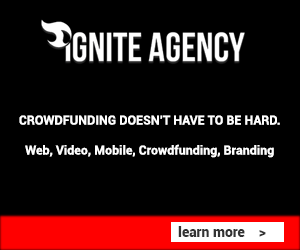Crowdfunding has been all of the rage over the last year with the implementation of Regulation CF (Title III of the JOBS Act), Regulation A+ (Title IV of the JOBS Act) and the release of the prohibition on general solicitation in certain Regulation D offerings (Title II of the JOBS Act). Regulation A+ and Regulation CF have essentially democratized fund raising by giving non-accredited investors an opportunity to invest in private companies. We have yet to see the success of Regulation CF as it was implemented last month, however, portals such as StartEngine (www.startengine.com) have had great success raising funds under Regulation A+. For example, Elio Motors closed on nearly $17 million in funding through StartEngine’s portal.
Regulation CF (“Regulation Crowd Funding”) and Regulation A+ have varying investor requirements, reporting requirements, filing burdens and advertising rules. The table below outlines the major differences between Regulation CF offerings and the two types of Regulation A+ offerings (Tier 1 and Tier 2). It also compares them with Rule 506 under Regulation D, which permits general solicitation in private placements if sales are made only to accredited investors.
| Feature | Regulation CF | Reg A+
(Tier 1)* |
Reg A+
(Tier 2)* |
Reg D
Rule 506 |
| Offering limit (per 12 months) | $1 million | $20 million | $50 million | Unlimited
|
| Number of Investors | Unlimited | Unlimited
|
Unlimited
|
Unlimited accredited; 35 non-accredited |
| Investment Per Investor | Annual income or net worth less than $100K, 5% of lesser of net worth or annual income
Annual income and net worth $100K+, 10% of lesser of net worth or annual income |
Unlimited
|
Unaccredited investors, 10% of greater of annual income or net worth
Accredited investors, no limit
|
Unlimited
|
| SEC Approval OR Filing Requirements |
Basic business disclosure filing with SEC on Form CF
No SEC approval required |
Robust business disclosure filing with SEC on Form 1A SEC approval required |
Robust business disclosure filing with SEC on Form 1A SEC approval required |
Form D filed with SEC with no business disclosure No SEC approval required |
| Financial Statement Requirement | Officer certification if raising $100,000 or less Reviewed financial statements if raising $100K - $500,000 Audited financial statements if raising $500,000-$1M, however, first time CF issuers may use reviewed financial statements. |
Unaudited financial statements permitted | Audited financial statements required | None (if only accredited
investors) |
| Intermediary Required | Broker/dealer or funding portal | No
|
No
|
No
|
| Subject to ongoing SEC reporting | Annual report with financial statements certified by officer | Form 1-Z report within 30 calendar days after termination or completion of offering | Annual reports with audited financial statements; semi-annual reports with unaudited financial statements | No
|
| State Filing | None | Extensive | Generally, no | Minimal
|
| Advertising and general solicitation | Permitted after SEC filing | “Testing the Waters” permitted before and after SEC filing |
“Testing the Waters” permitted before and after SEC filing |
If sales only to accredited investors |
| Estimated filing costs, legal fees and accounting fees for initial filing | $8,000 - $12,000 | $80,000- $120,000 | $50,000- $80,000 | $10,000 - $40,000 |
Guest Written By: Jeffrey Marks, J.D. of Alliance Legal Partners
Alliance Legal Partners has over 20 years of experience guiding clients through the formation, operation, financing, growth and sale of their businesses.
We serve as outside general counsel to our clients and handle their day-to-day corporate and contract matters. We offer a cost effective solution for a company or individual who appreciates the value of big firm expertise, but is looking for small firm attention and a reasonable fee structure.
Visit our website for more details.













